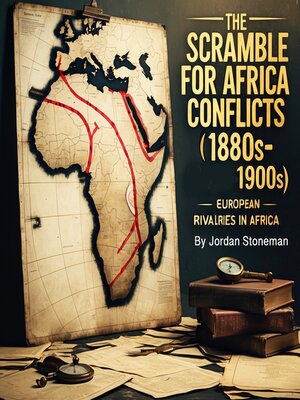The Scramble for Africa
audiobook (Unabridged) ∣ Conflicts (1880-1900s) – European Rivalries in Africa
By Jordan Stoneman

Sign up to save your library
With an OverDrive account, you can save your favorite libraries for at-a-glance information about availability. Find out more about OverDrive accounts.
Find this title in Libby, the library reading app by OverDrive.



Search for a digital library with this title
Title found at these libraries:
| Library Name | Distance |
|---|---|
| Loading... |
This audiobook is narrated by a digital voice.
In 1870, European control over the African continent was remarkably limited, consisting of a handful of coastal trading posts, the unique settler colony of the Cape, the ancient but declining Ottoman territories in the north, and the precarious French foothold in Algeria. The vast interior of Africa remained largely unknown to European geographers, governed by complex kingdoms, city-states, and societies that had flourished for centuries without European interference. Within a single generation, this situation would be completely transformed as European powers carved up the entire continent with a speed and thoroughness that ranks among the most dramatic territorial redistributions in human history.
The Africa that existed before the European partition was a continent of extraordinary diversity and sophistication, home to political systems ranging from the great kingdoms of the west and east to the intricate age-grade societies of the forest regions and the pastoralist confederations of the savanna. The Kingdom of Buganda on the shores of Lake Victoria maintained a complex bureaucratic system that impressed even European visitors with its efficiency and sophistication. The Ashanti Empire in present-day Ghana commanded trade networks that extended across West Africa and maintained diplomatic relations with European powers as an equal sovereign state. The Sokoto Caliphate in northern Nigeria governed territories larger than many European countries through an administrative system based on Islamic law and scholarship.
The economic foundations of pre-colonial Africa were far more complex and developed than European colonizers would later acknowledge. Long-distance trade networks connected the Mediterranean coast with the forests of Central Africa, carrying gold, ivory, salt, and other commodities across thousands of miles of desert and savanna.







